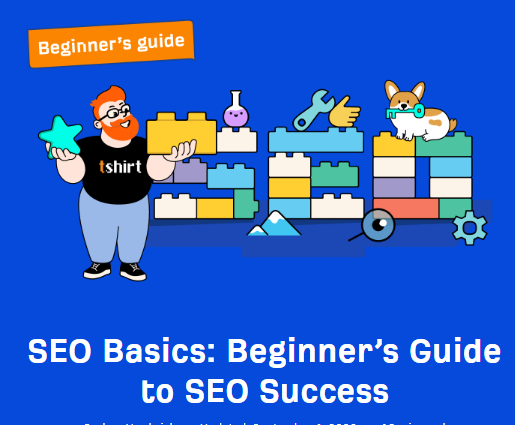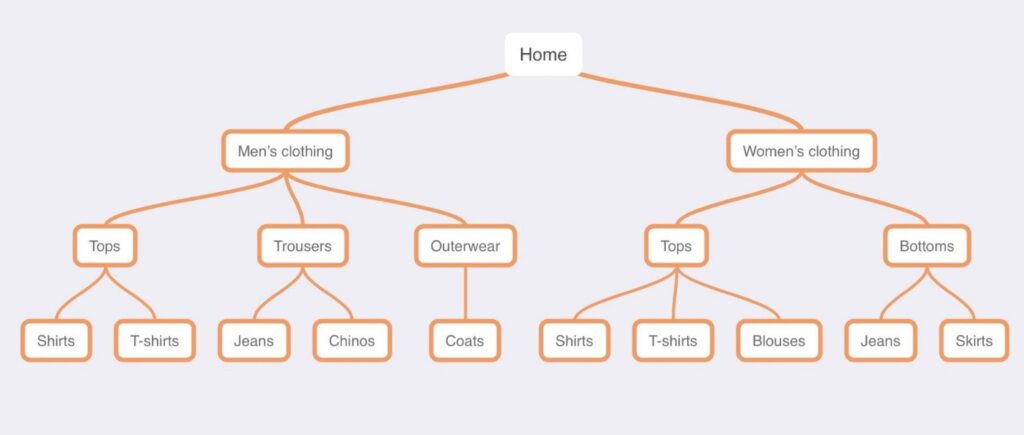Introduction
SEO (search engine optimization) is the process by which a website can increase its visibility in search engines. Make no mistake: SEO is not easy, but it’s critical to the success of your business. This guide will help you understand how SEO works and how to optimize your site so that you get found when people search for things on Google, Bing, or any other search engine.
What is SEO?
SEO is the practice of optimizing a website to rank higher in search engines. It’s a way for businesses to increase their visibility, attract more customers, and grow their businesses.
The goal of SEO is to improve the quality and quantity of traffic from “organic” or “natural” results on Google, Bing, and other search engines. This guide explains how it works, why it matters so much for your business’ success, and how we can help you achieve those results!

How to Gain SEO Experience and Improve Your Skills
Learn about the industry.
Get involved in the community.
Find a mentor who can help you improve your skills and advise you on how to get started as an SEO professional.
Read blogs like this one! We post regular articles on general SEO topics like content marketing, link building, and analytics that will help build up your knowledge base of best practices for improving rankings on search engines such as Google or Bing. We also have a number of guest posts from other industry experts that can be very helpful for learning how other people think about SEO issues, including some well-known names like Rand Fishkin (founder of Moz) and Matt Cutts (former head of web spam at Google).
13 Privacy-Focused Alternative Search Engines to Google
The privacy-focused search engine Duck Duck Go is a great alternative to Google. It doesn’t track your searches or personal information, so you can be sure that it won’t be used against you in the future.
Startpage is another good alternative if you want to avoid Google’s invasive tracking features but still get good results for your searches (and don’t mind seeing ads).
Disconnect is another option if you’re looking for something more robust than Startpage or just want more information about how much data each website collects from users’ browsers when they visit it. This extension blocks third parties from tracking users’ activities on their computers and mobile devices by blocking cookies and hiding IP addresses from advertisers who might otherwise use them to target ads based on browsing history. But unlike other products in this category, such as DoNotTrackMe!, Disconnect doesn’t require any user input or configuration before its protections are activated; all users have to do is install the extension onto their browsers and go on enjoying life without worrying about being tracked online anymore!
How to Structure Your Website’s Architecture for SEO
Website architecture is the way your website’s content is organized. It can be structured around different topics, such as:
Content: The main focus of this type of architecture is to provide valuable information for users and encourage them to stay on your site longer. This type of structure works well for websites that have a lot of long-form content, like blogs or e-commerce sites with product reviews.
Navigation: This type of architecture puts navigation at the forefront so users can find their way around easily without spending too much time searching through pages in order to find what they need (or want). This would work well if you have a large number of products or services listed on one page where visitors don’t need as much detail about each item—they just want quick access so they can get in and out quickly!

White Hat SEO: How to Rank Without Breaking the Rules
White hat SEO is the process of ranking your website in search engines without breaking any of the rules. It’s important to note that there are two different kinds of white hat strategies: those that help you rank higher and those that keep your site safe from being penalized by Google. The former is generally considered more valuable than the latter because it can lead directly to conversions (e-commerce sales), but it’s also worth keeping in mind that these strategies can sometimes conflict with one another—for example, if you’re trying to get links from authoritative sites but don’t want them from sites with low domain authority or page authority (PA).
The following are some examples of white hat techniques:
Writing content people want to read or share; creating useful resources on topics related to your niche; conducting interviews with industry experts; sharing news stories related specifically to certain industries
Linktree SEO Case Study: The Rise, Fall, and Future
Ahrefs is a company that provides SEO tools, including Linktree. Linktree was acquired by Ahrefs in 2017, and the team behind it has been working on making changes to the product since then. The result is Ahrefs Webmaster Tools (AWT). AWT is essentially what used to be known as Linktree, but with some improvements and additional features added on top of it.
The biggest change you’ll notice when using AWT vs. old versions of Linktree is that there aren’t any links anymore! Instead, you’ll find data related directly back up into your site’s pages themselves: How many times each page has been crawled by search engines; whether or not those pages have broken links within them; how much traffic each individual page receives from search engines over time; etcetera…
Why SEO Is Important: 8 Reasons (And How to Get Started)
Search engine optimization (SEO) is the process of improving the visibility of a website or web page in a search engine’s unpaid results, often referred to as “natural,” “organic,” or “earned” results. The following guide will explain what search engine optimization is and why it’s important for your business.
We’ll also show you how to get started with SEO, including:
How to choose your keywords and focus on long-tail phrases rather than single words or short phrases
How to use keyword research tools such as Google Keyword Planner and Moz Keyword Tool
How to create compelling content that users are likely to share on social media sites
Single-Page Websites and SEO: The Essential Guide
Single-page websites are a great way to get more out of your website. They allow you to present all the information about your business in one place, which makes it easy for visitors and search engines alike.
Single-page websites can be especially useful if you have a lot of content that needs to be organized in an orderly fashion. If this sounds like something that might apply to you, then read on! We’ll take a look at how single-page websites work, how they affect SEO (search engine optimization), how best to structure yours for this purpose, and examples of other sites that are doing it well right now.
What are the best SEO tools?
There are many different SEO tools out there. You can use these to help you with your content creation, keyword research and analysis, competitor analysis, and even backlink analysis. Here are some of the best SEO tools that we recommend:
This tool is great for analyzing backlinks or competitors’ websites. It has a free version as well as paid plans starting at $79 per month (which includes a 30-day free trial).
SEMrush (https://www.semrush.com/) This tool is great for doing keyword research but also provides other useful information about your website, such as visitor stats and domain history data.
Has Google’s ranking dropped dramatically? (Here’s What to Check)
On-page SEO:
Off-page SEO:
Technical SEO:
Backlink profile:
How to Get on the First Page of Google in 2023
The first thing to know about SEO is that it’s not a short-term strategy. You can’t just post a few blog posts and expect to be on the first page of Google in six months. The reason for this is because Google has been around for over 20 years now, and they’re constantly updating their algorithms to improve the user experience and make sure they give people the best results when they search for something online. So if you want to be on top of things and stay there, you need to work at it every day!
Now let’s get into what makes up good content:
Google Search Operators: The Complete List (44 Advanced Operators)
Google Search Operators are special characters you can use in your searches to filter and refine results. They’re not as well known or understood as they should be, but they can make a huge difference in how you find information online.
Here’s an example: if you want to search for articles about “SEO” on the web, but only those written by publishers who are part of Google News’ partner program (and therefore likely more reliable), this is how you’d do it:
SEO for Lead Generation: How to Drive High-Quality Leads Using Product-Led Content
Product-led content is a great way to generate leads. The problem is that many businesses have no idea what it is or how to create it. Let’s take the time now, before we dive into specific tactics, so you can understand why this type of content works so well.
Product-led content should be written for the reader, not the search engine (SEO). You want people who read your articles or watch your videos to get value out of them; if they don’t use them as a reference tool in their own decision making process, then what’s the point? It doesn’t matter how much traffic comes from Google; if no one buys anything, then your business will fail regardless of whether or not they found you through organic search results!
Product-led content should be useful and actionable, not just informative; otherwise, readers won’t bother reading it at all! You need something new out there that helps people solve problems rather than just providing information about existing solutions, which may already exist elsewhere online anyway.”
Accessibility for SEOs: How to Comply With the ADA and WCAG
Accessibility is important for SEO because it helps with rankings, user experience, and user engagement.
Rankings: Google has made accessibility a ranking factor since 2013. While they don’t say how much weight they give to it, you can be sure that it plays a role in your site’s overall performance.
User experience: Users who have disabilities benefit from well designed websites and applications that work for them as well as people without any limitations. This improves their overall user experience, which leads to higher conversion rates and better search result rankings (see above).
User engagement: When users can interact with your website or app easily, they will spend more time on your page, which will increase its authority in the eyes of search engines like Google or Bing, thus improving its ranking further down the road.”
Conclusion
SEO is a complex and ever-changing field with many nuances. It’s important to stay up-to-date on new trends, tools, and strategies so that you can continue improving your website’s search engine rankings.